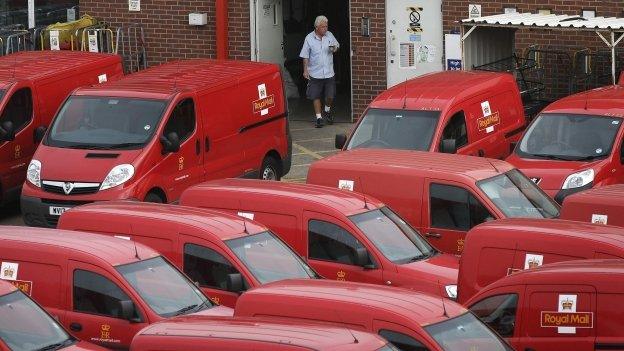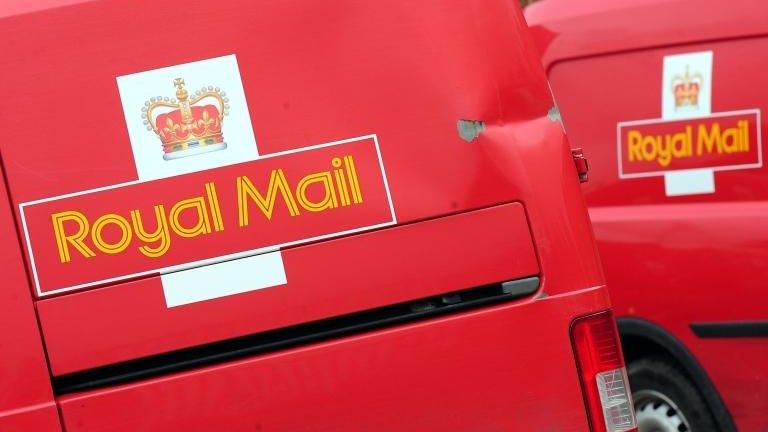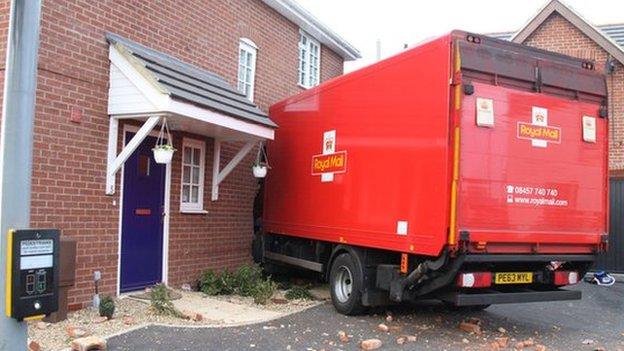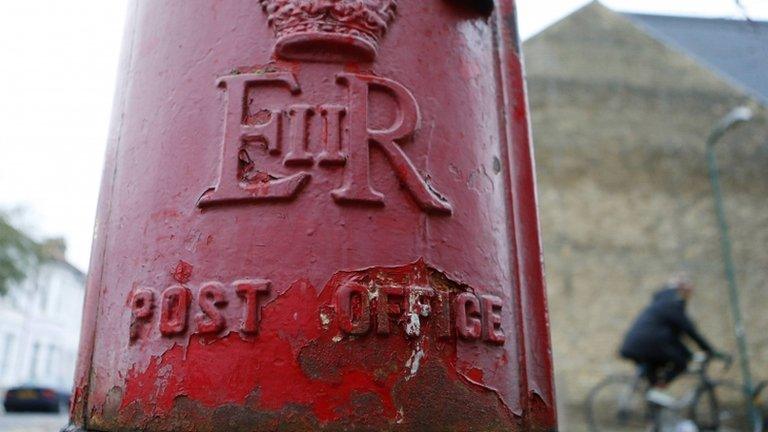Tories eye new Royal Mail sell-off
- Published

A very important date passed at the weekend - the end of the 180-day "lock-up" agreed by the government when it privatised the first chunk of the Royal Mail last October.
The agreement meant that the coalition was prevented from selling any more of its stake until 13 April - yesterday.
Now the deadline has expired, two things are happening: the share price is softening, because of the possibility of a future sale (called an overhang) and parts of the government are wondering how soon it might be politically possible to sell its remaining 30% stake.
Senior figures in the Conservative Party are keen to get on with it as soon as possible.
No decision has been made, but ministers and key officials close to the prime minister and the chancellor have told me that if it was left up to them, they would sell the stake before the next general election.
The period after the Royal Mail's full year results, due on 22 May, could be one option.
Those results are expected to reveal continuing improvement in performance at the Royal Mail, possibly giving the share price a boost.
There is a sticking point.
Conservative members of the coalition are not convinced that Vince Cable, the business secretary, has much appetite for a sale.
He has been the government's lead on the Royal Mail and was the man sent out to defend the coalition following the National Audit Office's report on the sale's "value for money" at the beginning of the month.
Conservative colleagues are sympathetic to Mr Cable's position, if he is indeed negative.
"It's a tough sell for him to Lib Dem core voters," was how one official put it to me.
The problem is the controversy the sale has sparked over whether the initial offer price was too low.
The NAO suggested that the government's pitch at 330p was overly cautious and that a higher price would have brought in more money for the state, and hence the taxpayer.
It also said that if the government had sold fewer shares - and therefore kept a larger stake - it could now be looking at gaining a greater advantage from the subsequent rise in the share price (Royal Mail is now trading at 492p).
Amyas Morse, the head of the National Audit Office, said at the beginning of April: "The department was very keen to achieve its objective of selling Royal Mail and was successful in getting the company listed on the FTSE 100.
"Its approach, however, was marked by deep caution, the price of which was borne by the taxpayer."
The government countered that a successful sale was the primary objective, not making as much money as possible. Its 30% stake is now worth £1.5bn, so some of the upside of the share price rise would come the taxpayers' way if a second sale is agreed.
Since the heady highs of 615p in January, the Royal Mail's share price has fallen by more than 20%.
Analysts are slowly turning negative, with four out of 12 which follow the stock now marking the shares a "sell" or "strong sell".
Of course, every penny off the share price is a little less money for the state. And for the second sale, the government will have to offer the shares at a discount to the current price to create demand.
Interestingly, that discount may make the second sale less controversial, as there is unlikely to be the upward "pop" in the price experienced first time around.
After launching at 330p, the first day's trading saw the Royal Mail share price rise to 455p, a valuation increase of £750m.
Opponents of the sale have latched on to that figure as the amount the taxpayer "lost".
The government will want to avoid that attack next time around.
- Published25 March 2014

- Published20 March 2014

- Published24 January 2014
